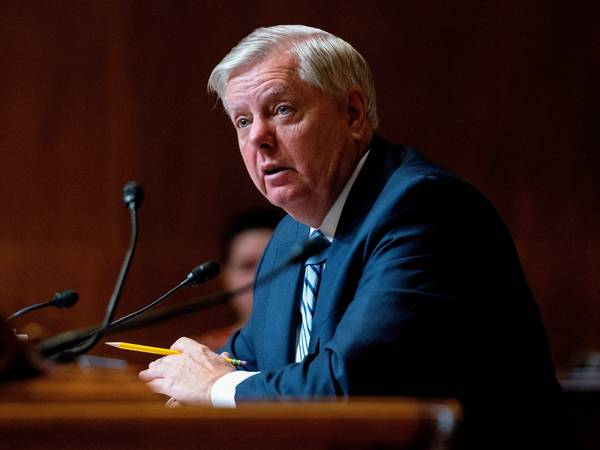US Senator Lindsey Graham (R-SC) has proposed new legislation to impose tariffs on nations buying crude oil or petroleum products from Iran.
Graham announced on X that his proposed Tariffs for Terrorism Act results from extensive consultations with former President Donald Trump, focusing on strategies to curtail Iran's ongoing oil revenue.
“It is long past time to make those that enrich this terrorist regime pay a price, and there’s no better price than tariffs on products coming into the United States,” Graham wrote on X.
In an interview with Jewish Insider, Graham emphasized that Trump would re-impose maximum pressure on Iran from day one, "starting with tariffs on countries supporting terrorism and the Ayatollah."
A consistent stance of the Trump administration has been that the revenue generated from Iran’s oil sales significantly finances terrorism and the nation's advancing nuclear program.
In his bill, Graham also referenced the International Atomic Energy Agency (IAEA), which has become increasingly critical of Iran’s nuclear activities. The IAEA has expressed grave concerns about the ostensibly peaceful nature of the program. According to the agency’s reports, Iran has amassed substantial quantities of highly enriched uranium, implying a potential weapons development agenda.
Recently, Secretary of State Tony Blinken revealed that Iran's nuclear breakout time has been reduced to approximately one to two weeks, underscoring the critical urgency of addressing this matter.
In June, Graham criticized the Biden administration and highlighted that Iran has significantly benefited from oil sales in recent years. He condemned the implementation of sanctions, asserting that “Iran is either evading sanctions or the Biden Administration is not enforcing them.”
Graham noted that countries like China are acquiring Iranian oil at below-market prices and financing Tehran. He said, “Sanctions are crucial but frequently circumvented. Thus, we propose tariffs on any nation purchasing oil from Iran, as their discounted oil acquisitions provide them with an economic advantage over us. No one understands tariffs better than President Trump.”
Iran has been boasting about selling crude oil to 17 countries, including some in Europe, despite global sanctions. According to the Foundation for Defense of Democracies (FDD), Iran exported 141.7 million barrels of oil during the first quarter of 2024, marking a 28 percent increase compared to the same period last year.
This surge in oil exports has significantly bolstered Tehran's currency reserves, enabling support for its military industry and proxies as it intensifies tensions with Israel.
In March, Iranian exports peaked at 1.82 million barrels per day, the highest rate since October 2018, just before the Trump administration reinstated oil sanctions. This growth in exports has had a substantial impact on Tehran's budget, as oil exports accounted for over 40 percent of Iran's total export revenue in 2023.
The Biden administration has faced ongoing criticism for its perceived leniency toward Iran, particularly in its reluctance to confront Iran’s actions and avoid escalating tensions ahead of the November election.
This soft approach in enforcing sanctions has also allowed Iran's nuclear program to exceed international regulations, with the UN's nuclear chief recently warning Iran is "weeks not months" away from a nuclear weapon.
